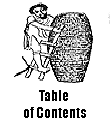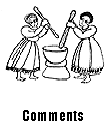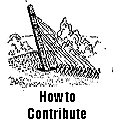
|
by Joaquin San Lorenzo “Memories are like a fist-full of sand, the more you try to grasp them, the more they slip through your fingers.” This is not so much an old saying in my family, as much as something said frequently among the old ones. I make the distinction as I can personally attest to this. I heard them say it. But now that they are all gone, even the younger ones of my own generation will have to merely take my word for it. For the old ones died off, sometimes one by one, sometimes one after the other. While others smiled quietly, content to watch the children play, not imagining for a second that their stories and wisdom could possibly compete with the lure of fast, exciting video games. And they were right. I was a just a tyke in the early 70’s when my father’s business brought him from Italy to Addis. At that young age, everything about this “new” land, Ethiopia, fascinated me. The creepy sounds of the jiboch at night when they wandered too near the city, the incredible smells and tastes of w’T and aliCHa, my akist playfully warning that if I wandered too far out of her sight “Ambessoch yibeluhal, lijé!” My family worked hard to make a life for all of us. I was too young to realize or even imagine the extent of what history had in store for Ethiopia. My biggest worry was to remember the fidel (ha... hu...) to impress our AmariNa astemari (he... ha...) at the Italian school on Belai Zeleke (hé... hih...) aka Mesfin Harar, or whatever the hell they’ve decided to call it now (hoooooooo!). Circumstances soon became too difficult for us, and my family left Addis for Italy, followed by most of our Abesha relatives. Unfortunately we were not alone. And while everyone who left had their own story of who they were, what they did, and why they left (even your very humble author), the weight of being forced to leave a place you called home was so heavy, it stifled any desire to talk about it. Meanwhile, all of us tried to re-acclimatize ourselves quickly. Although difficult at first, the resilience of youth soothed my transition back to the place of my birth. But my Abesha relatives tried especially hard, and in so doing, stopped speaking in Amharic to me, as well as to their children. To my parents, our years living in Ethiopia was merely reduced to the topic of a good after-dinner conversation when entertaining guests. To me, it was my childhood. Wisedew weyim tewew. During the passage of the many years since my youth, I witnessed the older generations of my family pass on. Among them, my closest relatives from Addis. Growing up in Southern Italy, I lived in the nebulous “2nd world,” where cameras and film were present, but camcorders and computers were still years to arrive. The only means most people had of communicating ideas, stories, feelings was the tried and true method of repeating it over and over, whereas now any moron from Memphis can put up a website detailing their family’s exotic vacation to Canada. Somewhere down the line, although in retrospect far too late in the game, I decided to write. I began to write down what I remembered the old ones telling me. I wrote about what I saw, what I heard. In my late teens, I moved to the US to attend Santa Clara University, and got in so much debt that Master Card wouldn’t allow me to leave. And now, like all immigrants here, I try to balance myself on the tightrope of assimilation without losing my identity. Since my soccer skills weren’t quite good enough for Juventus (who am I kidding...not even good enough for the US national team) I became more and more drawn to artistic expression. Yet somewhere during my University years, I realized the importance of having enough money to eat regularly. So, I sold my creative soul to the lure and stability of the corporate world. And I know I’m not alone; many far better had fallen before me (possibly even a few Seleda readers, hmm?). As the pressures found in modern life (success, appearance, family) increase, I find myself sacrificing memories for other priorities. It is my biggest fear, my biggest phobia, my neurosis if you will, that one day the memories will be gone. With them will be a piece of my personal history, my identity. And I will have to question myself, “Did they really say that? Was it really like that? Or did I just imagine all of it?” But even if my spells of introversion restrict me from passing stories on by oral tradition, my writing will at least guarantee that I can answer these questions, even if only to myself. Meanwhile, I sit at a local bunna-bet passing a leisurely afternoon with others from Addis, talking about life here, there, now, then. A few more grains of sand left to remember, to talk about...for now. - Joaquin San Lorenzo is the author of several feature-length screenplays he is currently trying to promote in Hollywood, including a story of Ethiopia during the revolution entitled, “The Jewels of the Lion.” |

|

|

|

|

|
| © Copyright SELEDA Ethiopia, April 2001. All Rights Reserved. |
